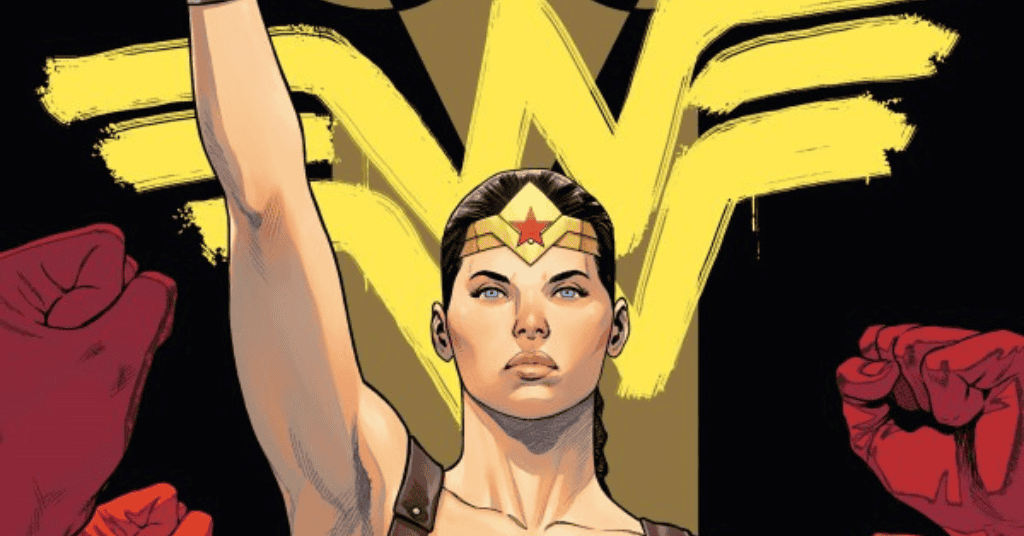Wonder Woman #26
Recap
Now that Etta, Emilie, and baby Lyssa have been saved, Wonder Woman sets her sights on rescuing a whole society. After meeting the feline renegades hoping to fight back against Mouse Man's regime, Diana is inspired to join them and take the dictator down for good. Mouse Man knows not what he's up against!
Review
Wonder Woman #26 takes a bit of a jump from the previous issue to the events of Diana taking down Mouse Man and his regime. The previous issue ended with Diana locating Etta, Emilie, and Lyssa, while also gaining a new perspective on her current journey, deciding that she cannot simply leave the people of this nation under the thrall of their oppressor. This issue jumps back and forth through time, exploring how Mouse Man rose to power while, in the present day, he and Diana finally come face to face. While this backstory sets up an excellent microcosm for how easily fascism can rise, it also acts as commentary on the mindsets of many individuals today.
While much of the issue showcases the present-day battle between Diana and Mouse Man, the real substance lies in how Mouse Man’s backstory informs who he is now. It was revealed in previous issues that this island nation was formed by those who demanded to live somewhere free from the influence of superheroes, but that concept is explored in far greater depth here. As it turns out, this nation was established after enough people were able to convince the world’s governments to allow it to exist. What follows is a deeper exploration of Mouse Man’s pathos, revealing him as an incel after his earlier encounter with Wonder Woman. While most of the people moving to this island are doing so because their lives were negatively impacted by the collateral damage of superhero battles, Mouse Man relocates due to his humiliating defeat in his former supervillain persona.
Cut to the modern day: the idea of Mouse Man being an incel is further explored when Diana taunts him in the same ways she did during their first encounter. She routinely calls him “little” and “small,” acknowledging that she doesn’t see him as a true threat. For those unfamiliar, “incel” is a term coined on the internet for someone (generally a man) who believes that the reason they cannot attract someone romantically or sexually is because they are superior to them. It is essentially a superiority complex born from the logical fallacy that one’s inability to achieve a goal must be due to the opposition of others. Mouse Man embodies and amplifies this behavior on a nationwide scale, using this mentality to justify his actions and his fascist takeover of a vulnerable group of people.
The discussion of fascism stems from this, with Mouse Man preying on this vulnerable group by offering safety through control. Because the nation does not allow superheroes within its borders, it struggles to manage violence and crime. The initial leader believed everyone would share his vision for a better place, foolishly forgetting that greed is always humanity’s downfall. Ironically, this same greed for power propels Mouse Man into the role of savior, ruling the nation through fear. All of this is explored wonderfully in this issue, making for a deeply introspective book that serves as both real-world commentary and an engaging superhero narrative filled with action and melodrama.
Final Thoughts
Wonder Woman #26 is an excellent exploration of Mouse Man’s past and what drove him to where he is today, making him a truly formidable villain for Wonder Woman.
Wonder Woman #26: The Growth of Facism
- Writing - 9/109/10
- Storyline - 9/109/10
- Art - 9/109/10
- Color - 9/109/10
- Cover Art - 9/109/10
